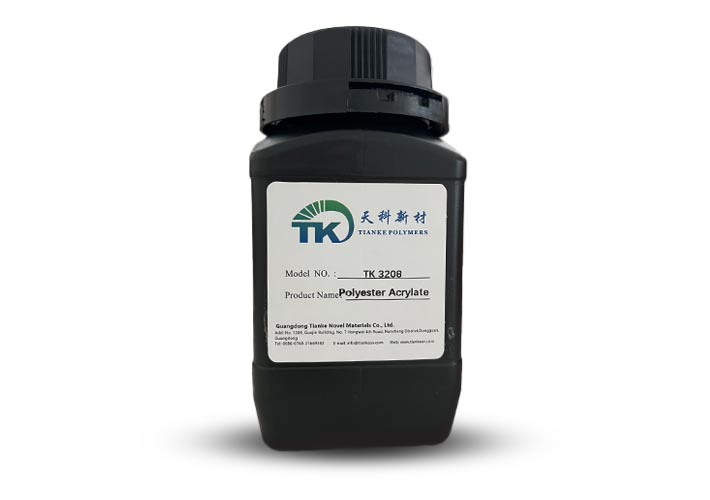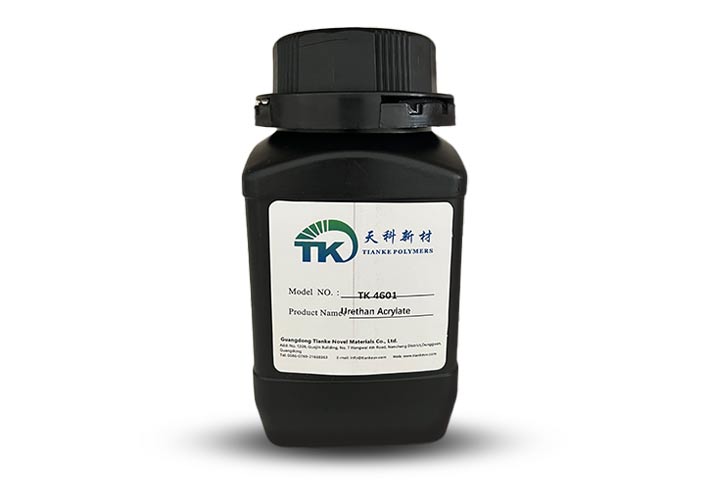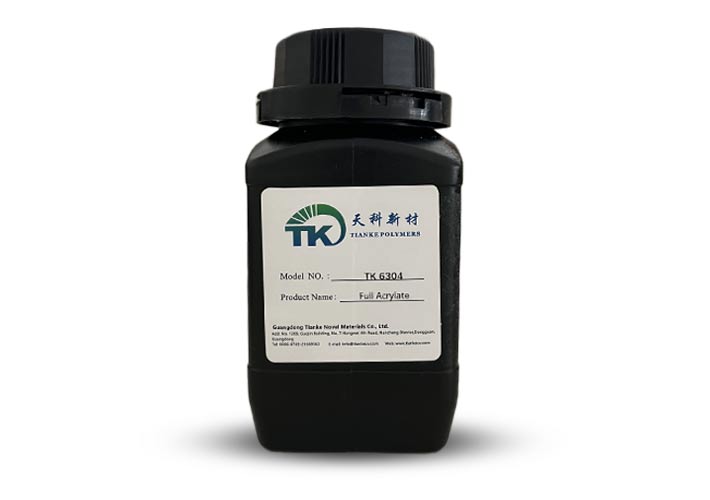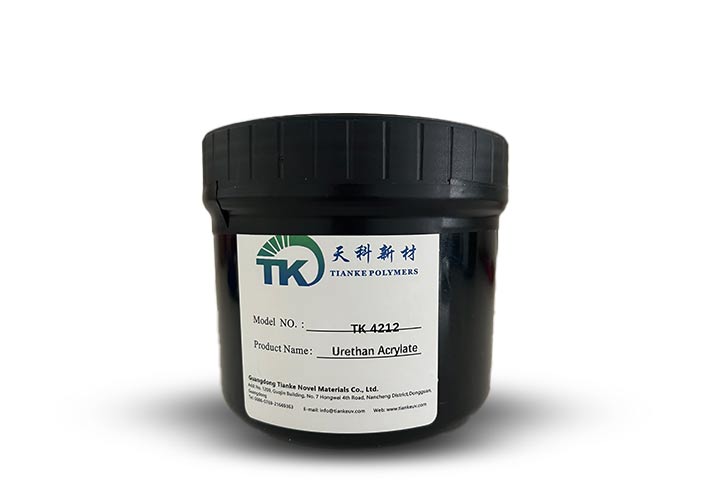Products
TK4210 Aliphatic Urethane Acrylate
TK4210 Is a difunctional Aliphatic urethane acrylate oligomer. It is broadly used in UV/EB applications. suitable for primer of metallizing and plastic coatings. with the features of good flexibility,good metallizing, good boiling resistance,good curing speed and surface dry and adhesion.
Technical Parameters:
| Model NO. | TK4210 |
| Functionality | 2 |
| Appearance (By vision) | yellowish liquid |
| Viscosity (CPS at 25℃) | 40,000-80,000 |
| Color (Gardner) | ≤1 |
| RI (nD at 25℃) | 1.483 |
| Density (g/ml) | 1.15 |
| Pencil Hardness | 6B |
Performance Highlights
- good flexibility
- good metallizing
- good boiling resistance
- good curing speed and surface dry and
adhesion
Suggested Application
- Vacuum metallizing primerand plastic coatings
Packing
Plastic barrel, 50kg net.
Iron drum, 200kg net.
Storage
Protecting from direct sunrays and heat sources;
Avoid storage under an oxygen-free atmosphere;
The shelf life in the dry & well-ventilated place, which is below 40℃, is 12 months max.
Cautions
Avoid skin and eyes contact;
Protective gloves are required;
For detailed information, please refer to the Material Safety Instructions (MSDS).
Innovative
solutions
Wide Range
of products
Customization
Quality Focus
Constant
improvement
Performance Highlights
- fast curing speed and high reactivity
- high gloss
- good adhesion
- good chemical resistance
Suggested Application
- UV Coatings : wood, plastic
- UV Inks : screen, OPV
- UV Optical fiber color ink
Packing
- Plastic barrel, 50kg net.
- Iron drum, 200kg net.
Storage
- Protecting from direct sunrays and heat sources;
- Avoid storage under an oxygen-free atmosphere;
- The shelf life in the dry & well-ventilated place, which is below 40℃, is 12 months max.
Cautions
- Avoid skin and eyes contact;
- Protective gloves are required;
- For detailed information, please refer to the Material Safety Instructions (MSDS).
Get a customized quote that fits your plan!
Interested in our Products?
It wouldn’t be better to contact us with your inquiry as follows:
1) what’s your detailed application?
2) what’s your substrates?
3) what’s your operation process?
4) what’s your detailed requirements on properties?












